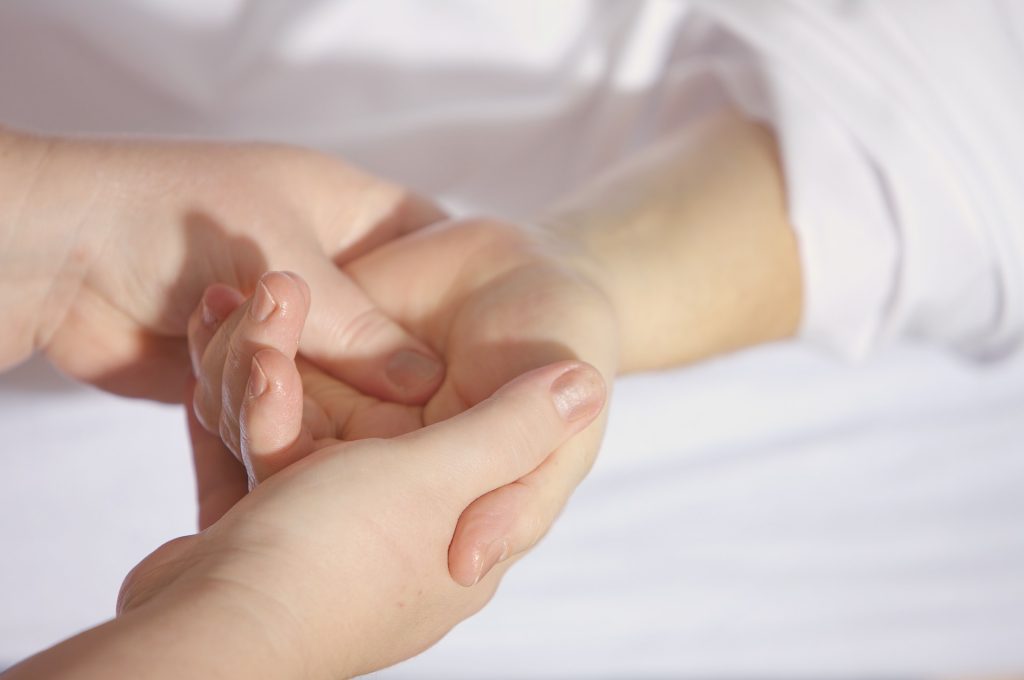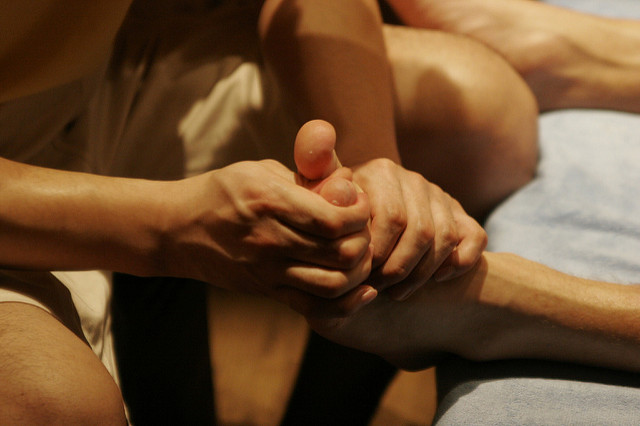Massage Therapy Helps Manage Aggressive and Agitated Behaviours in Dementia
Massage and touch therapy, are more effective than pharmacologic treatments for reducing aggression and agitation in adults with dementia according to a study published in Annals of Internal Medicine.
Dementia, which can be caused by Alzheimer’s disease, causes brain cells to degenerate. Agitation, anxiety and aggression in dementia sufferers present a challenge in caring. Pharmacologic (such as antipsychotics and antidepressants) and nonpharmacologic (e.g. massage) interventions are used to treat neuropsychiatric or aggressive and agitated symptoms in persons with dementia. A review by researchers from Canada compare the efficacy of pharmacologic and nonpharmacologic interventions for treating aggression and agitation in adults with dementia.
The study published in Annals of Internal Medicine searched for Randomized controlled trials comparing interventions for treating aggression and agitation in adults with dementia. Pairs of reviewers independently screened studies and appraised risk of bias. After screening of 19 684 citations, 163 studies (involving a total of 23,143 patients) were included in a meta-analyses.
Analysis of interventions targeting aggression and agitation (148 studies [21,686 patients]) showed that, across five outcomes, multidisciplinary care, massage and touch therapy, and music combined with massage and touch therapy were clinically more efficacious than usual care. Recreation was statistically but not clinically more efficacious than usual care.
Although certain pharmacologic treatments (dextromethorphan-quinidine and cannabinoids) were effective compared to placebo or usual care in subgroup analyses, the authors note that effective nonpharmacologic treatments should be prioritized given the known harms associated with certain pharmacologic treatments.
The authors concluded that nonpharmacologic interventions such as massage and touch therapy are more efficacious than pharmacologic interventions for reducing aggression and agitation in adults with dementia.


